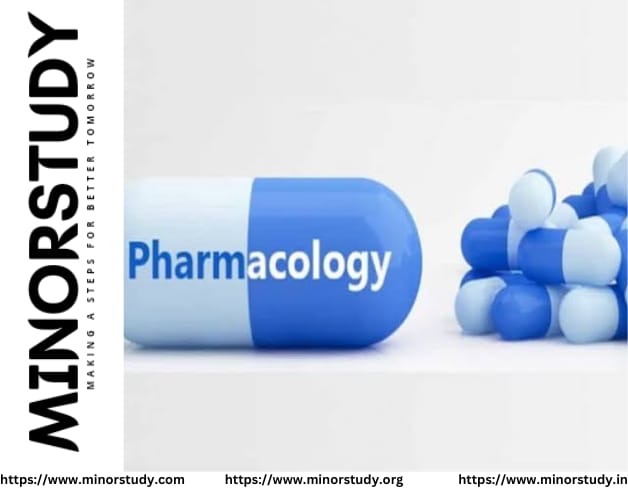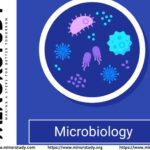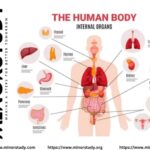🌿 Introduction: The Unsung Lifesaver Behind Every Pill
When you swallow a tablet, apply an ointment, or get vaccinated, you’re interacting with the science of pharmacology — the study of how drugs interact with the body. It’s not just about chemistry or prescriptions; it’s the science of healing, prevention, and saving lives.
- 📚 What is Pharmacology?
- 📜 Timeline: The Evolution of Pharmacology
- 💡 Fascinating Facts About Pharmacology
- ❓ Frequently Asked Questions (FAQs)
- Q1: Is pharmacology the same as pharmacy?
- Q2: What does a pharmacologist do?
- Q3: Why is pharmacology important?
- Q4: Can pharmacology predict side effects?
- Q5: Is pharmacology relevant in COVID-19?
- 🌍 7 Powerful Reasons Why Pharmacology Saves Lives
- 1. 💊 It Gave Us Modern Medicine
- 2. 🧬 Personalized Medicine & Pharmacogenomics
- 3. 🧠 Mental Health Treatment
- 4. 🤒 Rapid Response to Pandemics
- 5. ⚖️ Risk vs. Benefit Analysis
- 6. 🚑 Emergency Medicine & Anesthesia
- 7. 🌿 Better Health Through Natural Compounds
- 🎉 Observance: Celebrating Pharmacology
- 🙏 Wishing Note for Pharmacologists and Learners
- 📌 Key Takeaways and Important Points
- 🏁 Conclusion: Pharmacology is the Backbone of Medical Miracles
Pharmacology lies at the intersection of biology, chemistry, medicine, and technology, and it shapes every aspect of modern healthcare. From painkillers to chemotherapy, pharmacology is at the heart of human survival and well-being.
📚 What is Pharmacology?
Pharmacology is the branch of science that studies drugs, their origin, composition, effects, mechanisms, and therapeutic uses. It includes understanding how drugs interact with cells, tissues, and systems, and how they can treat, cure, or prevent diseases.
Pharmacology is divided into two main branches:
Pharmacodynamics – What the drug does to the body
Pharmacokinetics – What the body does to the drug (absorption, distribution, metabolism, excretion)
There are also subfields like:
Clinical pharmacology – Human trials, dosage design
Neuropharmacology – Brain and nervous system
Toxicology – Poison effects and safety
Pharmacogenetics – How genes affect drug response
📜 Timeline: The Evolution of Pharmacology
| Year | Milestone |
|---|---|
| 2600 BCE | Ancient Mesopotamian texts mention herbal remedies |
| 400 BCE | Hippocrates promotes rational use of medicines |
| 1025 CE | Avicenna writes The Canon of Medicine |
| 1543 | Scientific revolution improves understanding of anatomy and drug effects |
| 1805 | Morphine is first isolated from opium |
| 1897 | Bayer synthesizes aspirin |
| 1928 | Alexander Fleming discovers penicillin |
| 1950s | Rise of modern psychopharmacology (antidepressants, antipsychotics) |
| 2000s | Personalized medicine and pharmacogenomics emerge |
💡 Fascinating Facts About Pharmacology
The word “pharmacology” is derived from the Greek pharmakon, meaning drug or poison.
The same drug can be a cure or a toxin — dosage matters!
Aspirin is over 125 years old and still widely used for pain and heart health.
Pharmacology gave us insulin, which turned diabetes from a fatal illness to a manageable one.
The global pharmaceutical industry is worth $1.5 trillion and is rooted in pharmacological research.
❓ Frequently Asked Questions (FAQs)
Q1: Is pharmacology the same as pharmacy?
No. Pharmacology is the science of how drugs work. Pharmacy involves preparing and dispensing drugs. Pharmacologists study; pharmacists apply that knowledge.
Q2: What does a pharmacologist do?
They research drug mechanisms, develop new medications, test drug safety and effectiveness, and help in clinical trials. Their work helps determine dosage, interactions, and side effects.
Q3: Why is pharmacology important?
It enables us to design drugs that heal without harming, tailor treatments to individuals, and fight emerging diseases. Without pharmacology, modern medicine would collapse.
Q4: Can pharmacology predict side effects?
Yes. Through pre-clinical studies and clinical trials, pharmacologists identify potential adverse effects and minimize risks.
Q5: Is pharmacology relevant in COVID-19?
Absolutely. Vaccines, antivirals, and supportive treatments were developed using pharmacological research and testing.
🌍 7 Powerful Reasons Why Pharmacology Saves Lives
1. 💊 It Gave Us Modern Medicine
Thanks to pharmacology, we have antibiotics, antivirals, antimalarials, chemotherapy, insulin, vaccines, and more. These medications have extended life expectancy and reduced disease burden globally.
2. 🧬 Personalized Medicine & Pharmacogenomics
Pharmacology now helps tailor drugs to your DNA. This approach minimizes side effects and maximizes efficacy — a true revolution in patient care.
3. 🧠 Mental Health Treatment
Depression, anxiety, schizophrenia, and bipolar disorder are treated with precision drugs. Psychopharmacology has improved millions of lives by managing mental illness.
4. 🤒 Rapid Response to Pandemics
During COVID-19, pharmacologists worked round the clock to understand how antivirals, steroids, and vaccines could be safely used. They also predicted adverse interactions with pre-existing medications.
5. ⚖️ Risk vs. Benefit Analysis
Pharmacologists assess the risk-to-benefit ratio of drugs before approval. They help ensure drugs heal more than they harm, saving countless lives from poor formulations.
6. 🚑 Emergency Medicine & Anesthesia
Emergency pharmacology has made surgeries safer through precise anesthesia, sedatives, and resuscitation drugs. It is the backbone of emergency response systems.
7. 🌿 Better Health Through Natural Compounds
Many modern drugs come from plants, animals, and marine life. Pharmacologists study nature to create synthetic versions with improved effectiveness and safety.
🎉 Observance: Celebrating Pharmacology
There isn’t a globally recognized World Pharmacology Day, but it is celebrated through:
World Pharmacists Day – September 25
National Pharmacology Weeks in medical schools
International Conference on Pharmacology (annual scientific symposiums)
These events highlight drug safety, clinical research, and future challenges in pharmacological science.
🙏 Wishing Note for Pharmacologists and Learners
🌟 “To those who decipher molecules to save lives—thank you.”
Whether you’re a student, professor, researcher, or clinician, your work in pharmacology ensures that treatments remain safe, effective, and accessible. Wishing you continued breakthroughs and recognition in your noble pursuit.
📌 Key Takeaways and Important Points
Pharmacology = Science of drugs and their effects on the body.
Not all drugs are good or bad—context and dose matter.
Pharmacology is foundational to modern healthcare.
Helps in drug discovery, safety, and clinical effectiveness.
Vital in personalized medicine, mental health, and pandemics.
Pharmacologists work behind the scenes but save millions of lives.
🏁 Conclusion: Pharmacology is the Backbone of Medical Miracles
From antibiotics to antidepressants, vaccines to painkillers — every life-saving medicine owes its existence to pharmacology. This often-unsung science not only saves lives but also improves the quality of life, giving people more years and better years.
As drug-resistant bacteria emerge and global diseases rise, pharmacology continues to evolve, arming humanity with smarter, safer, and more sustainable treatments.
So, the next time you feel better after taking medicine, remember—it wasn’t magic. It was pharmacology.









I reckon something genuinely interesting about your site so I saved to favorites.